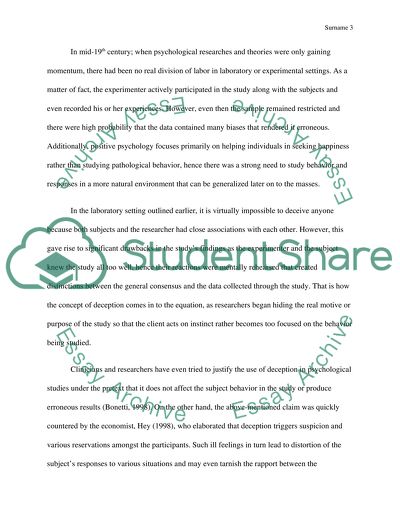Cite this document
(“Ethical Problems in the Field of Positive Psychology Essay”, n.d.)
Retrieved from https://studentshare.org/psychology/1396316-ethical-problems-in-the-field-of-positive-psychology
Retrieved from https://studentshare.org/psychology/1396316-ethical-problems-in-the-field-of-positive-psychology
(Ethical Problems in the Field of Positive Psychology Essay)
https://studentshare.org/psychology/1396316-ethical-problems-in-the-field-of-positive-psychology.
https://studentshare.org/psychology/1396316-ethical-problems-in-the-field-of-positive-psychology.
“Ethical Problems in the Field of Positive Psychology Essay”, n.d. https://studentshare.org/psychology/1396316-ethical-problems-in-the-field-of-positive-psychology.


